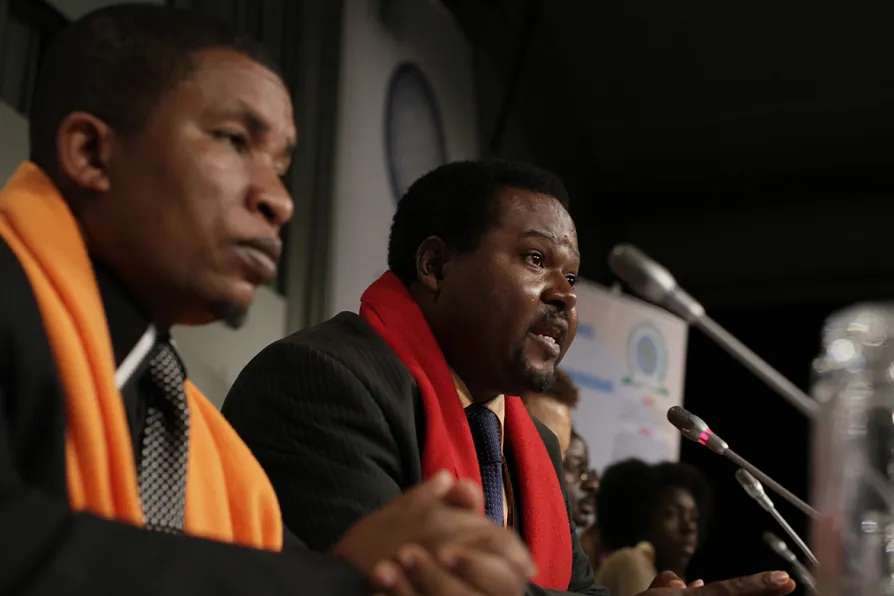Climate activists in Africa accuse UN climate agency of allowing corporations to greenwash fossil fuels at COP28

 Coordinator Mithika Mwenda (left) and committee member Augustine Njamnshi (right) at a press conference of the Pan African Climate Justice Alliance at the Climate Summit, in Copenhagen Denmark, on December 10, 2009
Coordinator Mithika Mwenda (left) and committee member Augustine Njamnshi (right) at a press conference of the Pan African Climate Justice Alliance at the Climate Summit, in Copenhagen Denmark, on December 10, 2009
CLIMATE activists in Africa have accused the United Nations climate agency of allowing corporations with dubious climate credentials to greenwash their polluting activities by taking part in its annual climate conference.
The criticism follows last week’s announcement that oil executive Sultan al-Jaber will lead the next round of UN climate talks, which will be held in the United Arab Emirates in November.
The Pan African Climate Justice Alliance (PACJA) termed the move as the lowest moment for the UN agency.
Similar stories

TOM HARDY traces how these climate conferences have been captured by fossil fuel interests while CO₂ levels have continued to rise since 1995 — but XR’s citizen assemblies and direct action have offered an alternative

Bleak report finds planet is on brink of irreversible climate disaster












